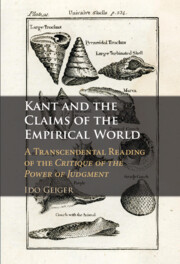This paper calls into question the view typically attributed to Kant that aesthetic judgements are particularist, resisting all conceptual determination. Instead, it claims that Kant conceives of aesthetic judgements, particularly of art, as playing an important role in the revision of concepts: one sense in which aesthetic judgements, as Kant defines them, ‘find a universal’ for a given particular. To understand the relation between artistic judgements and concepts requires that we consider what I call Kant’s diachronic account of aesthetic ideas, or how such judgements unfold in the course of communication and reflection. My reading draws Kant much closer to debates in the philosophy of art on the semantic dimension of artworks. Here, illuminating the way in which aesthetic judgements about art can play a role in conceptual revision allows us to make sense of the way in which modern artworks contest concepts rather than merely presenting or expressing them.


